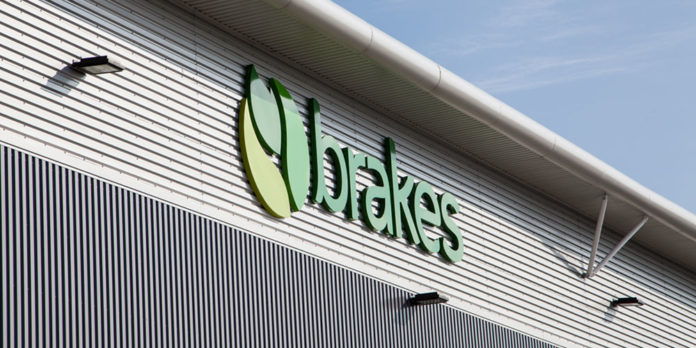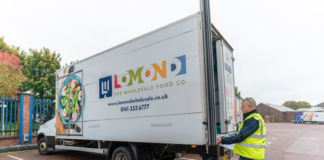Brakes is trialling a dynamic routing system for its delivery trucks with a plan to roll the technology out across its network of depots this year.
Philip White, corporate and logistics director at the wholesaler, said that the trial was currently underway at Brakes’ Warrington depot.
Speaking as part of a panel discussion at the Arena Face-to-Face summer event in London, he also confirmed that the company was trialling robotic picking in its warehouses, alongside investing in its software.
“We are investing and we will continue to invest to make our software as up-to-date as it can be,” he said. “With that, you start getting better insight and you can start looking at where inefficiencies are in the supply chain.”
White was part of a larger discussion focusing on the importance of the relationship between supplier, wholesaler and customer against the backdrop of a falling pound, food inflation and an unprecedented raft of regulatory changes. These include the introduction of the National Living Wage, the apprenticeship levy and increased business rates.
He said: “Brakes focuses on product innovation, and we work closely with our suppliers and retail partners, but there is also process and operations innovation. Dynamic routing is about how efficiently you send trucks out and how you drive cost out of the network…robotic picking brings a number of benefits in terms of head count and pick speed. However, it’s only one part of a very long supply chain.”
Chairing the discussion at the Jumeirah Carlton Tower hotel in Knightsbridge, Peter Martin, vice president of food and drink analyst CGA, highlighted the “tsunami of costs” currently being faced by the foodservice sector, adding that Brexit would undoubtedly bring another set of stresses.
“Pressure on the supply chain is acute and it’s probably going to get worse,” he said. “This is against the background of a flat market. The frequency of eating out has not changed over the last four years. It’s a big market but it’s a flat market.”
Chris Hopkins, commercial director of pub and restaurant operators Mitchells & Butlers, agreed that for any operator, growing market share in the current climate was “a fundamental challenge”.
However, he warned that in finding efficiencies, the foodservice industry should guard against squeezing margins and stifling innovation: “We’ve seen a lot of growth in the market place and almost all of it has been driven by innovation,” he said. “While it’s very easy to focus in on cost, the big issue is how we get that continuing supply of innovation: new product and new ways of presenting products that better meet customer needs.”
Also on the panel was Frank Bandura, chief financial officer at Argentinian steak chain Gaucho, and Paul Collins, commercial director at fresh produce supplier and wholesaler Reynolds.








